Eine kleine Radiogeschichte
1 – EIN HÖRSPIEL – Wenn man gute dreieinhalb Jahrzehnte Radiosendungen gemacht hat, wiederholt man sich schon mal. Ich versuche, in dieser kleinen Radiostory ein paar „alten Hüte“ zu entstauben. Besser gesagt, ich hole sie jetzt ein letztes Mal aus dem Regal. Als ich im Sommer 1989 aus Minneapolis Steve Tibbbetts‘ Antworten auf meine Fragen für ein Jazzthetik-Interview bekam, hatten sie die Gestalt einer alten C-90-Kassette angenommen. „Das ist ja ein Hörspiel!“, war mein erster Gedanke, völlig beeindruckt davon, wie Steve hier allerlei Feldaufnahmen zwischen Tibet und den Rocky Mountains mit seinen eigenen Geschichten zur Entstehung der Musik von „Northern Song“, „Safe Journey“, „Exploded View“ und „Big Map Idea“ verband.

2 – JAZZ BY POST IN BERGEINÖDEN – Ich hatte schon in Bayern ein paar Wahlverwandte im Radio ausfindig gemacht, während des Studiums in Würzburg – Ingeborg Schober, Michael Hutter, Karl Bruckmaier begleiteten mich mit ihren „Zündfunk“-Sendungen und waren fast alle Brian Eno-Fans. Einmal war Phil Manzaneras „801 Live“ das „Album der Woche“, und zu hören wie Eno da zwei Lieder einer alten Heroes Ray Davies und John Lennon sang, war eine Offenbarung. Einmal, 1981 oder 1982, sass ich in dem alten Restaurant nahe der Fachklinik Furth i. W., meiner ersten Arbeitsstelle als Psychotherapeut für Alkohol- und Medikamentenabhängige, und die alte Lady, die dort grossartige Schnitzel und Steaks zubereitete, liess für den „verrückten Herrn Engelbrecht“ (so nannte sie mich manchmal) den „Zündfunk“ laufen („aber nur, weil es noch so leer ist, mein Lieber“) – und nacheinander spielten Pere Ubu und die Talking Heads! Irgendwas muss ich richtig gemacht haben, mich für ein paar in den hinterstens Bayerischen Wald verzogen zu haben. Meine erste Begegnung mit der Musik von Steve fand genau dort statt, im Fünf-Häuser-Örtchen Bergeinöden bei Arnschwang, wo ein Paket von „jazz by post“ mit „Northern Song“ in meinem Briefkasten steckte. Ich glaube, es war Sommer. Und „Too Rye Aye“ war die meistgespielte Platte in diesem Kaff am Ender der Welt.3 – RICHARD UND SUSSAN IM CHE COO LA LA – Anfang der Siebziger Jahre war Winfrid Trenkler mein Dealer für „Seelennahrung“ im WDR, und in den grossen Ferien an der Nordsee, noch viel früher, als Teenager, war das Michael Naura, seine Jazzsendungen im NDR. Als ich auf Umwegen Mitte der Achtziger Jahre nach Dortmund zurückkehrte, waren die Sendungen von Alan Bangs, Karl Lippegaus und John Peel eine feines Sache. Tja, und nach zwei Jahren an der Volkshochschule Bochum im Rahmen einer spannenden ABM-Stelle mit dem Titel „Neue Konzepte der Gesundheitsbildung“ mal wieder arbeitslos, schrieb ich aus reiner Freude für Jazzthetik Musikkritiken, und machte meine ersten Interviews mit Richard Horovitz, Sussan Deyhim, Eberhard Weber, Heiner Goebbels, und Rabih Abou-Khalil.
4 – DIE NEUNZIGER IN DER ROTHENBAUMCHAUSSEE – Mit Geldverdienen hatte das wenig zu tun. Als ich nun aber Steves Kassette angehört hatte, fasste ich den Plan, zum ersten Mal in meinem Leben diverse Radiohäuser zu betreten. In kurzer Zeit hatte ich meine Premieren im DLF, NDR, WDR und HR. An einem einzigen Abend, im Oktober oder November 1989, liefen meine beiden Portraitsendungen über Steve Tibbetts, in Köln und Hamburg (die 1990er Jahre mit Michael Naura als Boss kamen mir wie ein wahr gewordener Kindheitstraum vor).
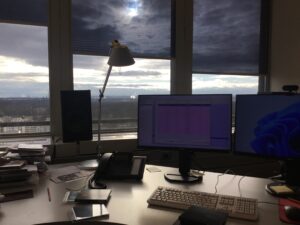
5 – MOVIES MADE OUT OF SOUNDS – Die LP- Und CD-Ausgabe von „Big Map Idea“ erschien damals mit meinen „liner notes“ – eine feine Sache. Alan Bangs schickte ich die Platte, und er spielte ein Stück daraus. Ich kannte ihn nicht persönlich, und „köderte“ ihn wenig damit, dass ich im beiliegenden Brief schrieb, dass der „spirit“ des von ihn so geschätzten John Fahey von ferne durch die Musik schweben würde! Meine allererste Produktion war früh morgens im Sendehaus des Deutschlandfunks. An den Titel jener Ausgabe der „Studiozeit“ kann ich mich nicht mehr erinnern, wohl aber daran, in der Nacht davor vor Aufregung kaum geschlafen zu haben. Und dann war es soweit – hinter der Glasscheibe: der Tontechniker, Harald Rehmann, und auch Karsten Mützelfeldt. Ich wusste, das war jetzt klassisches „Vorsprechen“, eine Art „Casting“, als ich vom Skript meine Moderationen lass. Es lief rundum gut – Karsten wusste ja, dass hier möglicherweise ein zukünftiger Kollege vorstellig wurde, und ich bin ihm heute noch dankbar, wie superkollegial er sich verhielt.
6 – MEMORIES OF MEETING KENNY WHEELER – Seitdem machte ich bis Ende der Nuller Jahre zahllose Portraits für Haralds Jazzabteilung (ich werde demnächst mal meine alte Sendung über Kenny Wheeler „ausgraben“ lassen) und seit Mai 1990 regelmässig die „Klanghorizonte“. Dann tauschte ich die Potraitstunden gegen das Jazzmagazin ein, die „Klanghorizonte“ liefen wie gewohnt weiter – immer nachts und live – wie habe ich diese Radionächte geliebt! Mein bislang letztes Portrait hatte ich 2014 über einen gewissen Jan Bang gemacht.

6 – CLOSING CIRCLES – Und nun sollte sich ein Kreis schliessen. Obwohl ich im Mai und September noch zweimal die „Klanghorizonte“ mache (und vielleicht einen kleinen Nachschlag bekomme, wenn meine Gehaltsforderungen im mittleren fünfstelligen Bereich erfüllt werden und ich nicht wie mein eigener Opa rüberkomme), wird die Sendung der JazzFacts am 22. Januar 2025 um 21.05 Uhr definitiv mein letztes Potrait sein – es begann mit Steve Tibbetts, und endet mit Steve Tibbetts. Das hat etwas Rührendes. Da ích sein Album „Close“ schon in den Klanghorizonten ausführlich vorgestellt hatte, sollte sich das Portrait mit dem Titel „Die Minesota -Kathmandu – Connection“ mit all seinen ECM-Alben befassen zwischen 1982 und 2025, ohne die „reissue“ seines zweiten Werkes „Yr“ unter den Tisch fallen zu lassen.
7 – DAS LETZTE PORTRAIT – Das ist mal eine Herausforderung, alle seine Lps und Cds mit seinem Freund und Perkussionisten Marc Anderson Revue passieren zu lassen, sinnlich, und „sinnmachend“, in 54 Minuten und 38 Sekunden. Auf Pellworm und daheim war ich in der Musik von Steve und Marc geradezu „verschwunden“, und gestern wurde diese knappe Stunde endlich produziert, im vertrauten Studio 3A, mit dem exzellenten Tontechniker Mr. Weingart. Als mein Redakteur die O-Töne gehört hatte , und zusammen mit Robert Oschatz die „voiceovers“ aufgenommen hatte, wusste er, dass diese Sendung – ich sag es mal so – „sehr bewegend“ sein würde, und das gewiss nicht wegen meines „nostalgischen Kreiseschliessens“.
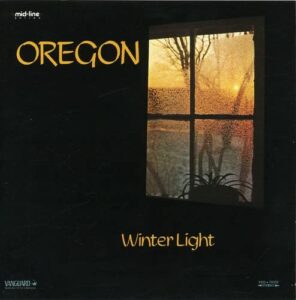
8 – ARBEIT AM DETAIL – Als wir fertig waren, war die Zeit zu lang: „wo jetzt kürzen, Mr. Weingart?“ – wir entschlossen uns, die Passage aus „The Big Wind“ auf eine Minute runterzubrechen; auf der Rückfahrt nach Aachen wurde mir bewusst, dass dem gewählten Ausschnitt (ohne die ursprünglich zu hörende Wandlung eines „rhythm patterns“) die geplante Wirkung schlicht abhanden kam. Kein grosses Ding, und kaum einer würde das im „flow“ des Hörens bemerken, aber so gefiel es mir einfach nicht, und ich buchte eine weitere Stunde im Sender (für den kommenden Montag), um eine andere kurze, aber effektvollere Passage aus dem Album „Northern Song“ aufzunehmen. So weit, so gut.The angel in the detail…
9 – „YOU WANT IT DARKER“ – Auch in der Sendung selbst wird sich ein Kreis schliessen, denn sie beginnt und endet mit seiner aktuelle Cd „Close“ – alles dazwischen ein Vorüberfliegen der Jahre, und, im schönsten Fall, hier und da, für den einen und anderen Hörer, auch die Art von Zeit, die still zu stehen scheint, wenn man völlig aufgeht in der Musik. Das Zauberwort ist „deep listening“. Das Begleitphänomen still stehender Zeit – faktisch vergeht sie im Fluge! Als kleine Zugabe, hier die Listung anderer Schallplatten, die in dieser Stunde Erwähnung finden: Leonard Cohens „You Want It Darker“, Mark Hollis‘ Soloalbum, „Electric Ladyland“ (blame it on the „Rolling Stone“) – sowie nicht namentlich, aber en passant, Musik von Ustad Sultan Khan, die drei Codona-Alben auf ECM, sowie die frühen Alben von „Oregon“.
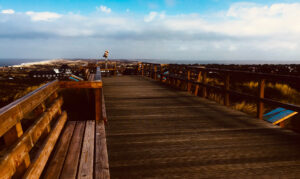
10 – „COVER STORY“ – Jeder Musikliebhaber und Freund des Mediums Schallplatte (aber auch CD) hat Lieblingscover, die in der Regel Teil von Lieblingsalben sind. Wenn du auf den Titel dieses kleinen Schlussabsatzes klickst, hörst du Steve seine Story erzählen zu dem Cover des vielgerühmten und viel zu wenig bekannten Albums „A Man About A Horse“ von 2001. Meine kurze Kurzgeschichte zu Oregons „Evening Light“ geht so: Während meines Psychologiestudiums in Würzburg hatte ich das grosse Glück, Seminare bei einem „Schüler“ von Herrn Dreikurs zu besuchen, der ein „Schüler“ des Individualpschologen Alfred Adlers war, einer der Pioniere der sog. Tiefenpsychologie. Wir erforschten früheste Kindheitserinnerungen, Lebensstilanalysen und das weite Feld der Traumdeutung. Einmal sollten wir drei aktuelle Träume aufschreiben, die uns bedeutsam erschienen, und einen für das Seminar auswählen. Zu meinen drei Träumen zählte der folgende, den ich nur deshalb nicht zur Sprache brachte, weil seine Deutung kinderleicht ist.11 – DER TRAUM – Es war ein heisser Sommertag, der sich dem Abend zuneigte. Ich hatte Tage zuvor von der anstehenden Neuerscheinung eines Oregon-Albums gelesen, mit dem Titel „Evening Light“. Im Traum ging ich zu den einschlägig bekannten Läden, u.a. zu jenem, bei dem früher oder später Dave Liebmans „Lookout Farm“ und „Under The Sun“ vom Human Arts Ensemble gekauft hatte oder noch kaufen würde. Einen Raubdruck von Watzalwicks Buch „Lösungen“ hatte ich auch dort bekommen. Kein Geschäft hatte die neue Platte von Oregon, ich stromerte durch die Strassen der Stadt, und als ich zum Schluss bei meinem speziellen Buch- und Musikdealer vorbeikam, schaute der Händler nach und drückte sein Bedauern aus. – Oh, sagte, ich, wie schade. ich liebe das Album „Distant Hills“, und ich kann es einfach nicht erwarten. Ich griff spontan unter seine Ladenkasse und holte dort eine andere, beigefarbene Kopie des illegal nachkopierten Büchleins „Lösungen“ hervor. Ich hielt es ihm vor sein Gesicht und sagte: „Es muss doch eine Lösung geben!“
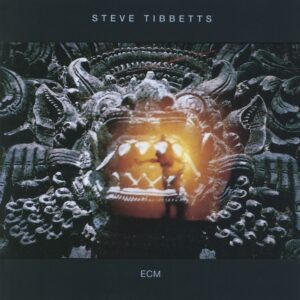
12 – NACHSPIEL / VORSPIEL – HIER noch einmal der Link zu meiner September 2025-Ausgabe der Klanghorizonte, die mit der „Gletschermusik“ von Ludwig Berger beginnt, und in der CLOSE von Steve Tibbetts erstmals, und mit vielen O-Tönen von Steve, vorgestellt wurde. // Nachtrag: Monatg, 19. Jan.: mit dem Tontechniker die Passage aus The Big Wind dringelassen, aber die Musik in der vorangehenden Moderation etwas angehoben & durch Unterlegung der Sounds eines realen Ganachakras dem Brief von Steve an Claudia passenden „impact“ verliehen. Mission accomplished. // Unglaublucherweise findet im Steve Tibbetts-Portrait auch die Insel Sylt Erwähnung (s. Foto von der Uwe-Düne)
“Hello, darkness, my old friend“ – some thoughts on Steve Tibbetts‘ „Close“

Steve Tibbetts‘ new album is sailing stars. It is a kind of shadow play, too. The love of life, the losses. It is glowing from start to end, with two, three explosions along the way. Things can explode in quietude, too, on this haunting melange of electric and acoustic guitars with discreet and, sorry to repeat myself, „glowing“ percussion every once in a while. A thousand miles away from an old hippie‘s shangrila. Hotel California has shut its doors.
The playing of the Minneapolis-based musician is instantly recognizable: it circles around small rhythmic-harmonic sound cells with all kinds of drone sounds and finest beats— and, breathtaking, though never forgetting to breathe: the silences, the minimal zero points, the moments of nothing lasting fractions of a second or two.
„CLOSE“ is like a dark Rothko painting on fire, in purely metaphorical and sensual ways. The tracklist reads like a Samuel Beckett poem. And, in regards to these invocations, I ask myself: how can something „noir“ like this be so elevating, so heartwarming?!
And now, a mood line, and a timeline with a twist:
Pharoah Sanders has made „TAUHID“, Jan Garbarek has made „DIS“, Van Morrison has made „VEEDON FLEECE“, Julian Priester has made „LOVE, LOVE“, Julie Tippetts has made „SUNSET GLOW“, David Darling has made „CELLO“, Laurie Spiegel has made „THE EXPANDING UNIVERSE“, Arve Henriksen has made „CHIAROSCURO“, Bill Callahan has made „APOCALYPSE“, Lambchop has made „SHOWTUNES“, and Steve Tibbetts has made „CLOSE“.
Glowing affairs all of them. Honestly, this album breaks my heart.
Michael Engelbrecht, Deutschlandfunk
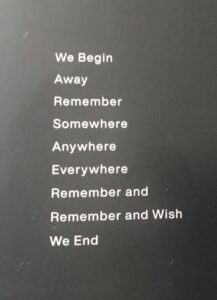
Steve speaking:
Steve Tibbetts: guitar, percussion, piano
Marc Anderson: percussion, gongs, handpan, loops
JT Bates: drumsGute Reise!
Click on the following line
to listen to the radio hour
with The Necks, Steve Tibbetts, Brian Eno, Robert Wyatt a.o.: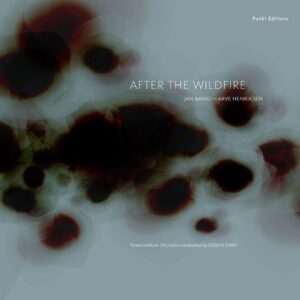
Part One – Of Ice and Fire
A form of language
The more he‘s alive, the more he‘s dying
(from Ludwig Berger‘s Crying Glacier) *
Meridian moon
(from Jan Bang / Arve Henriksen: After The Wildfire)* the vinyl runs with 45 rpm
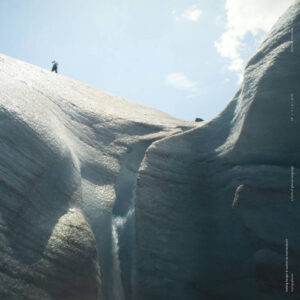
Part Two – Twilight Language
Away 3 (from Steve Tibbetts‘ Close)
We begin 3 (from Steve Tibbetts‘ Close)*
Warm running sunlight (from The Necks‘ Disquiet)
Away 1 (from Steve Tibbetts‘ Close)* „a small concert hall inside…“ – my 2018 interview with Steve Tibbetts

Part Three – Shades Of Blue, Shades of Green
Saltmarshe (from the Philip Jeck anthology „rpm“)
Sparrowfall 2 * (from Brian Eno‘s Music For Films, 1978)
The sight of the wind (from Robert Wyatt‘s Dondestan, 1991)
Shallow form (from Eno / Wolfe: Liminal)
Becalmed (from Brian Eno‘s Another Green World, 1975)* click on „Sparrowfall 2“ to listen to Brian Eno‘s memories on „Music For Films“

Auf‘s erste Hinschauen dachte ich an Fotografien von Gregory Crewdson – auch hier scheint vieles bis ins kleinste Detail arrangiert zu sein. Ist der Sternenhimmel überhaupt echt. Ist er! Der Clou ist, dass es sich um einen klassischen Schnappschuss handelt. Ich habe Steve Tibbetts natürlich auch gefragt nach diesem Bild, und ihm geschrieben, ein hinreissenderes Cover sei mir für diese Musik und ihre „twilight language“ kaum vorstellbar. „Fairytale“, „darkness“, „somewhere“, „anywhere“, „noir“, so flogen meine Assoziationen umher, auch, weil ich, neben den Klängen, schon die „tracklist“ kannte, die, nach dem Hören der Musik, für eine Extraportion Gänsehaut sorgten!
In regards to sequencing: 54 minutes and 38 seconds. To stick faithfully to the most rewarding sequence of tracks, i had to leave out pieces from these fantastic albums, old or new: Jeff Tweedy: Twilight Override / Lucrecia Dalt: A Danger to Ourselves / Meredith Monk: On Behalf Of Nature / David Darling: Cello.In regards to Eno / Wolfe (70 seconds of sound / soul / place searching)
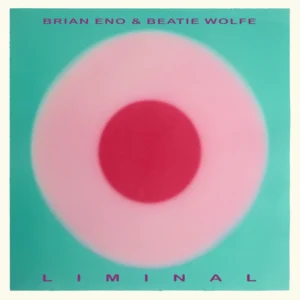
In regards to Jeff Tweedy: „It was novelist and critic John Berger who first posited that “calm is a form of resistance”. Who knows if Jeff Tweedy was channelling that sentiment while creating the gentle behemoth that is Twilight Override, but he has certainly responded to the maelstrom of paranoia and inhumanity unleashed by the second Trump term – what the Wilco frontman has dubbed “a bottomless basket of rock bottom” – with disarming composure, and a big batch of tunes for his fifth solo outing.“ (Fiona Shepherd, Uncut)

In regards to Steve Tibbetts:
one) „Steve speaks (1)“ („music philosphy“)
two) „Steve speaks (2)“ („twilight language“)
„At times I miss working in a record store. I miss the camaraderie of sullen, sneering record clerks. I miss hearing all the new releases, right out of the box. Closing up the store and going out to see Prince or Motörhead. Tom Smith was part of our crew working at the Wax Museum record store in Minneapolis. My daughter and I go visit Tom at the Electric Fetus record store at the end of every year. Tom has 10 albums ready that he thinks I will like. Laura Marling’s Once I Was an Eagle was in the stack some years ago. It stayed in my CD player for a long time. One long song. The same key. Repeating motifs and melodies. A trance. I could do that.“ (S.T.)

In regards to Philip Jeck: „Time, and the placement of time, is odd: as I type up this obituary, in a generic chain hotel bedroom, I do so to the sound of the first track from his 2015 album Cardinal album. Titled ‘Fleeing’, it fills the poorly-lit room with colour, anguish, hope and tension. The three minutes and seven seconds of the length feel like they could be both (i) forever and (ii) a mere gust of breeze at the window. On record or in performance, Jeck could juxtapose various emotions and – dare I say it – feelings. I distinctly remember him playing on one occasion and turning to a section which made me think, without warning: “Life can be pretty fucking dark sometimes, huh?” Yet I also recall how I also smiled at how beautiful this passing darkness was.“ (Dale Cornish, taken from his Philip Jeck orbituary, TheQuietus, 2024)
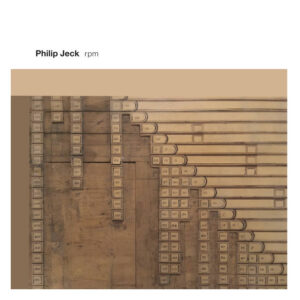
„Die Zeit und die Einordnung der Zeit sind seltsam: Während ich diesen Nachruf in einem Zimmer einer gewöhnlichen Hotelkette tippe, höre ich den ersten Titel von Philip Jecks Album Cardinal aus dem Jahr 2015. Der Titel „Fleeing“ erfüllt den schlecht beleuchteten Raum mit Farbe, Angst, Hoffnung und Spannung. Die drei Minuten und sieben Sekunden des Songs fühlen sich an, als könnten sie sowohl (i) ewig dauern als auch (ii) nur ein kurzer Windstoß am Fenster sein. Auf Platte oder bei Live-Auftritten konnte Jeck verschiedene Emotionen und – ich wage es zu sagen – Gefühle nebeneinanderstellen. Ich erinnere mich noch genau daran, wie er einmal spielte und zu einem Abschnitt kam, der mich ohne Vorwarnung denken ließ: „Das Leben kann manchmal verdammt düster sein, oder?“ Aber ich erinnere mich auch daran, wie ich darüber lächelte, wie schön diese vorübergehende Dunkelheit war. (Dale Cornish, übersetzt)

In regards to a certain passage of this hour: „Rejoyce“
Every album from this hour is a treasure trove. In my ears, and for heaven’s sake not in my ears only. Some have made history, some will make history, or do the „buried treasure game“. Much more important are the „stories“ that these albums “tell” us when we listen to them, mostly without words. Words: why words. East of words. The unspeakable comes into play. The storytellers, too. There’s a lot to rummage around here. There’s no replacement for listening. (m.e.)
P.S. In regards to more blue hours:

from left to right: Agharta / Love, Love / Big Map Idea / Ecstasy / Tauhid
„Twilight language and warm running sunlight“ – die Klanghorizonte (DLF) vom 25. September
special guests: Ludwig Berger and Steve Tibbetts
INTRO: Some people, listeners, have a story to tell with „field recordings“ that trigger encounters with some of the most adventurous sounds being „out there“. Some of those albums became famous (remember the one with those singing whales!), some very much stayed under the radar (very much like the spaces they had been exploring). Even the so-called well-known can turn into stranger things.
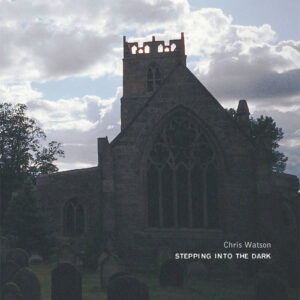
By chance, I once discovered an old album named „Trains in the Night“ beautifully capturing the sounds of old locomotives in England‘s vast hinterland, and the nature around. Listening to the compositions of artists like Jana Winderen BJ Nilsen, Chris Watson or Ludwig Berger, is always a special experience. Is the howling of the wind real, or enhanced by electronics? How can someone „document“ sounds that cannot be be heard within our „normal“ range of perception? In a way the act of „cartographing“ distant areas includes sharpened senses, adequate tools – and inventiveness. When I was sinking, literally, in some of these albums of „field recordings“, I couldn‘t help but remember, in moments passing by, old sci-fi movies, but from minute to minute I was more and more drawn into the sounds themselves and forgetting my sepia-tinged nostalgia. Where-am-I-music of a rare kind! Three field recordings turn up in my forthcoming hour of KLANGHORIZONTE! (this Intro is an updated version of my introduction for an interview with Jana Winderen – you can read it HERE!)
And here we go, dear music lovers…an hour filled with discoveries, re-discoveries, field recordings and conversations! Surprisingly there is even a short appearance of a Jefferson Airplane song, called „Rejoyce“. HERE it is!

“Without climate protection, it is likely that Ludwig Berger’s recordings will outlive alpine glaciers”, warns the film in its last shot, showing the valley overtaken by greenery. It is not exaggerated. The ice carried the planet’s history for millennia yet it is disappearing at an alarming rate. As a response, the album invites listeners to relate to the glacier as a body, filled with life, here gently auscultated by Berger’s hydrophones. With „crying glacier“ and its intrinsic more-than-human collaborative nature, Ludwig Berger amplifies the Morteratsch Glacier’s voice to emphasize its personhood, and other glaciers‘ urgent need for recognition and preservation.“ (from Ludwig Berger‘s Bandcamp page)
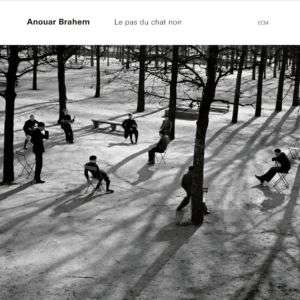
P.S. I was asking Lloyd Swanton, the bass player from The Necks, about some of his favourite ECM albums and more, and here comes his answer… (übrigens, The Necks spielen am 30. Oktober in Aachen und einen Tag später in Berlin)